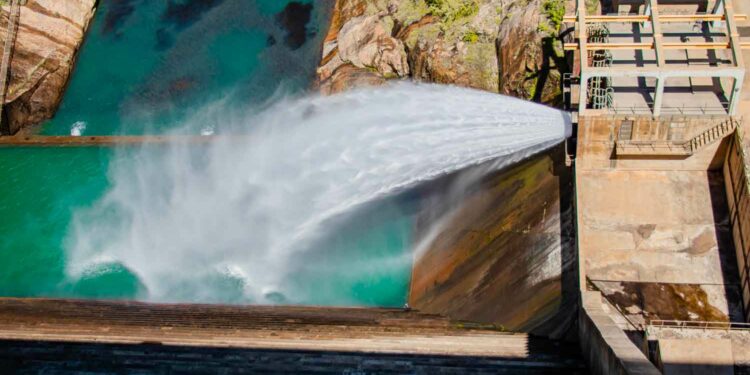Lesotho is in the process of executing an ambitious water infrastructure project that will not only transform its own economy but also positively impact neighboring countries, South Africa and Botswana. With an investment of $2.3 billion, the water transfer project aims to supply the region with 308 million cubic meters of water annually, covering domestic, agricultural, and industrial needs. This strategic effort is part of a broader plan to position Lesotho as a leader in renewable energy and sustainability on the continent.
The water transfer project, involving a complex 700 km canal system, aims to ensure a constant and sustainable water supply in the long term, benefiting both Lesotho and its neighbors. This project also includes energy components that will harness the country’s abundant renewable energy sources, such as hydroelectric, solar, and wind power, to generate energy that will not only meet domestic needs but also export surplus to South Africa. It is expected that by the end of 2026, Lesotho will be able to surpass its domestic energy demand, marking a milestone in the country’s energy production capacity.
Madagascar: A free surgery changes the life of a young woman
In his statements, King Letsie III emphasized the importance of this project for the country’s future, noting that his nation has much to offer neighboring countries. “This project not only addresses the immediate needs of our nation but will position Lesotho as a key player in the region. We will leverage our natural resources to drive economic development, improve the quality of life for our citizens, and offer sustainable solutions to our neighbors. We are committed to a prosperous and green future for our people and the entire region.”
The government of Lesotho, supported by King Letsie III’s commitment, is accelerating efforts to make the country a renewable energy powerhouse, aligning its strategy with the goals of the Paris Agreement. Additionally, it is focused on achieving universal access to clean water and improving sanitation conditions by the end of 2025, an ambitious goal supported by the construction of key infrastructure in rural areas.
The initiative not only has environmental and energy implications but also opens the door to inclusive economic growth. The construction of an energy substation, the improvement of agricultural infrastructure through irrigation, and the promotion of high-altitude tourism are part of the strategies being implemented to make the most of the country’s natural resources. The water and energy project is crucial for improving productivity and diversifying Lesotho’s economy, allowing the nation to play a key role in the region in terms of water resources and renewable energy.
This integrated approach, which includes boosting investments in water, energy, and agriculture infrastructure, is positioning Lesotho as a strategic player in Africa’s development, not only for its export potential but also for its ability to provide sustainable solutions that benefit the entire region.









